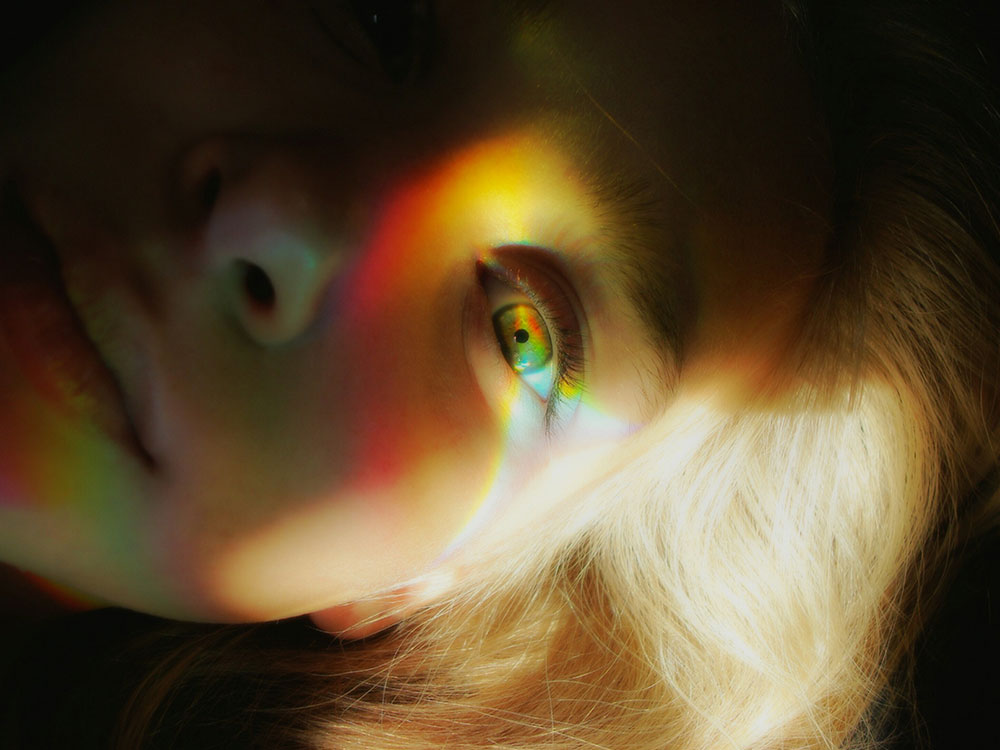Why Does Everything Seem Darker in One Eye?

Vision changes can be anything from sudden blurry vision to darkened vision. If you experience something drastic like this, it should be reported to your eye doctor immediately. That is the best way for your optometrist to assess the underlying cause and help you come up with a plan to restore your eyesight to normal.
The American Optometric Association (AOA) states that colors tend to look more faded and blurry with age due to eye lenses changing color for some people. However, age isn’t the only thing that can cause sudden darkened vision and other symptoms of that nature.
Now, if it’s not age-related, why does everything seem darker in one eye? Let’s explore.
Why does everything seem darker in one eye?
If things appear dimmer in one eye, there could be a serious eye issue at play. Many conditions, including age-related macular degeneration (AMD), cataracts, and glaucoma, can affect your eyes’ means of processing colors. Optic neuritis and retinal detachment can also contribute to this symptom.
So, why does everything seem darker in one eye? There are many potential causes. Complications with the optic nerve, eye diseases, and problems with your retina are common reasons behind dim vision in a single eye.
When any light comes into your eye, it should direct to the retina. The retina transfers data to the optic nerve, which works with the brain to turn the data into visuals that you can see with your naked eye. If there are any dilemmas with your optic nerve, such as in the case of optic neuritis, color saturation problems may arise.
Remember that sometimes dim vision impacts one eye, but at other times, it can affect both. Cataracts, for instance, are common in both eyes, but it’s not unheard of for them to happen in a single eye. Your symptoms might also be more significant in one eye, making you think that the other eye is not having issues when it is.
Is it normal for vision to be darker in one eye when waking up?
Your vision should never be darker in a single eye in the morning. This symptom could indicate an eye stroke or another problem. Your eye doctor can let you know for sure. If it turns out to be an eye stroke, the dim vision is likely caused by decreased blood flow to the optic nerve.
This condition may lead to problems with your side vision or present empty areas in your line of sight. Consult your eye doctor right away if you’re experiencing these symptoms, in addition to darker vision in a single eye, to determine the cause and reduce additional problems down the line.
Why does one eye see things brighter than the other?
Don’t be too alarmed if colors appear a little different in one eye. It’s not uncommon to see things brighter in one eye based on the anatomy and mechanics behind how eyes work.
The eye, for instance, has certain cells that pick up on the differences between colors. That can make the colors appear similar but a little different between both eyes.
Why is one side of my eye darker than the other?
If by this, you mean having eyes with multiple colors in them (e.g., one blue and brown eye and one blue eye or one blue eye and one brown eye), you might have what is called heterochromia.
There are several factors that can lead to this condition, including eye injuries, inflammation in the eyes, glaucoma, and diabetes mellitus. Some people are born with these eye variations, while others get them over the years. The causes can vary based on when your eyes change colors.
What causes dimming of vision?
As mentioned above, there are various potential causes of dim vision, which is sometimes referred to as low vision. What is low vision? It indicates vision loss in one or both eyes and can be characterized by trouble seeing at night while driving, seeing glares while on the road, and losing your eyesight altogether.
Low vision can mean that you still maintain some eyesight and have 20/70 to 20/200 vision. It can also happen if you are blind with vision that can’t get any better than 20/200 despite prescription glasses.
Some of the potential causes of low vision include cataracts, diabetes, glaucoma, and AMD. If you suspect you have low vision or notice any other symptoms of your vision dimming, it is imperative to arrange an eye exam right away.
That will help the eye doctor determine a good course of action for your condition and help you get the vision correction you need so that you can see better.
Summary: What causes dim vision in a single eye?
Darkened vision at any point is worth a call to your eye doctor, especially if it goes on for several minutes or more. If you’ve been wondering, ‘Why does everything seem darker in one eye?’, know that it could be for several reasons. It could be a symptom of an eye disease (e.g., AMD, cataracts, or glaucoma) or a problem with the optic nerve or retina.
Your eyes need both the optic nerve and retina to see. If your optic nerve is having complications, you might develop optic neuritis, which can make your vision look darker. And if your retina is at risk for detachment, your color vision may be impacted, too.
Do you experience problems with dark vision just in the morning? Contact your eye doctor right away, as this could indicate an eye stroke. Whatever the cause of your dim vision is, For Eyes’ eye care specialists are here for you.
This blog was originally published on May 12, 2020, and expanded in August 2022.
Book your eye exam at For Eyes.
Have you had your annual comprehensive eye exam? Schedule an appointment with an
Independent Doctor of Optometry at your local For Eyes today.








